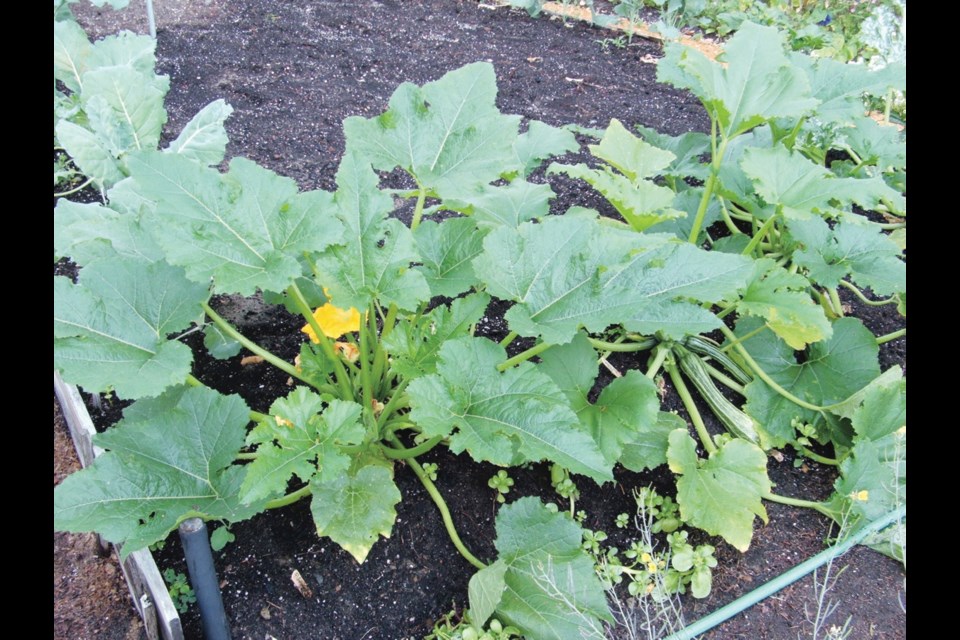Dear Helen: I’ve joined the hordes of people planting vegetables for the first time this spring. Most of my “garden” will have to be in containers on my deck. What plants can I grow in pots? How big should they be, and what kind of soil should I use?
V.C.
The easiest vegetables for container cultivation are the smaller ones — lettuce and other salad greens, bush beans, carrots, beets, kale, chard. Look for bush, or “patio”-type tomato and cucumber plants. Zucchini is another possibility, given a large pot. Labels will supply useful information.
Grow your favourite vegetables and avoid taking on too much. Match the container size to the size of the plants, keeping in mind that, at least in this case, bigger is almost always better. In summer, small containers dry out quickly and become difficult to keep adequately watered.
Aim for a container width of at least 30 cm. For a zucchini bush, a width of 40 to 45 cm would be better. Give carrots a deep enough container to allow for good root development.
For plump, vigorous and productive plants, give them a robust, moisture-retentive soil. Start with a basic commercial planting mix such as Pro-Mix BX and, for enhanced staying power in the mix, add some bagged and sterilized all-purpose soil. Garden centres carry various brands, but check that it is labelled “all-purpose.” An optional addition for moisture retention would be some coconut fibre (coir), which is sold in bags in some outlets.
Dear Helen: What is causing the leaves on my nectarine to be twisted and distorted? Is this a fungus? Is there a spray that would prevent it?
D.S.
The most common disease of peaches and nectarines is peach-leaf curl, which causes distorted, puckered, thickened leaves that often take on a red or purple tinge. Later on, leaves turn greyish and might drop off.
The fungus spores, which spread by wind and rain, infect buds very early in the spring as the buds begin to swell. Symptoms of the infection show up later as the leaves develop.
It is recommended to train peaches and nectarines against a house or garage wall, where the roof overhang will protect the tree against rain. In the open garden, an option is to erect a temporary canopy that will keep the tree dry during the February and March period of infection as buds are swelling.
To keep spores from germinating and reduce an infection, apply a lime-sulphur spray in the fall after most of the leaves have dropped and again very early in spring, before buds begin to swell.
Be a plant. Occasionally, my son and I speak of the state of the world and speculate on better ways of living. He often brings up a principle he sees as a key to significant improvement in human ways of being: Do as Nature does. “Be a plant.”
We share common needs with plants — air, water, food, adequate housing in a suitable location. Like plants, we put down roots, and hopefully bear fruit. Unlike us, they don’t rush. They pass through their seasons at a patient, measured pace.
Neither do they waste. What plants no longer need goes to ground, decomposes and forms nutrients that bestow ongoing life and health. Nature uses its goods again, and again and again.
Many human societies have gone in the opposite direction, of planned obsolescence baked into current goods, and a habit of acquiring something, using it once or for a while and throwing it away. Not sustainable. There is no more “away” on a finite planet.
Gardeners go against the throw-away culture in their compost heaps, where depleted plants, fallen leaves and other gleanings from our gardens are transformed into a rich soil amendment to nurture the next wave of plantings. Composting aligns us with Nature’s thrifty cycle that uses “waste” materials over and over.
On this Earth Day, and beyond, may we ponder the concept of aligning with Nature’s way. I’ll be thinking too of an admonition I once heard: You are a guest of Nature. Behave.
Help from Master Gardeners.
New to vegetable gardening? Victoria Master Gardeners have set up a service to help you get started and to answer your gardening questions. Email them at info@msvmga.org. On their website (victoriamastergardeners.org) is a section of answers to questions asked at their clinics. Access it by clicking on You Asked Us.



